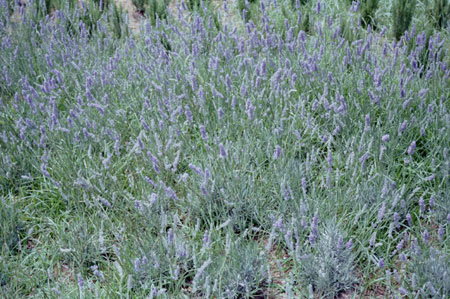
Wild things
On the outskirts of the park things pleasingly unkempt.
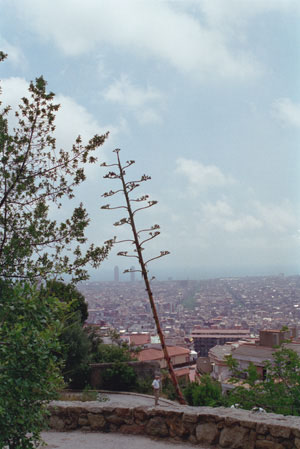
The tree may be listing, but who knows.
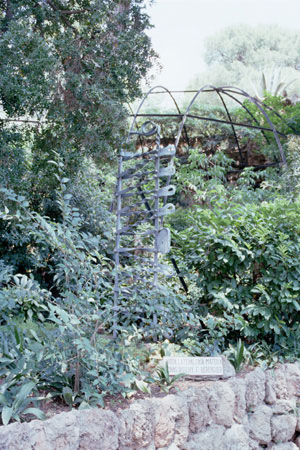
Over-wrought iron
Throughout the park there's some unusual iron sculpture and fencing.
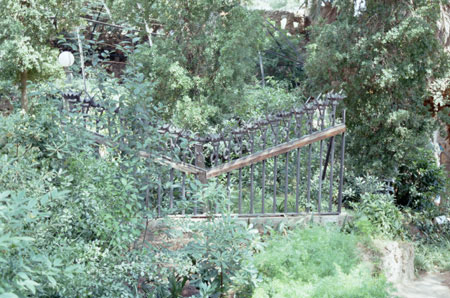
More over-wrought iron
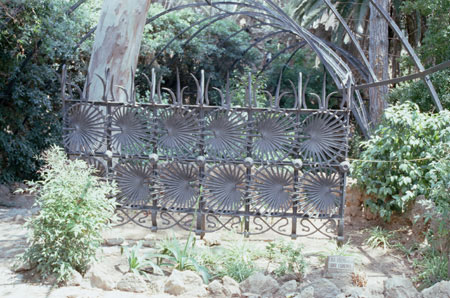
As sculpture
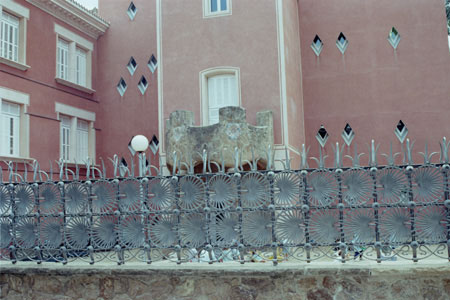
Finally, something practical
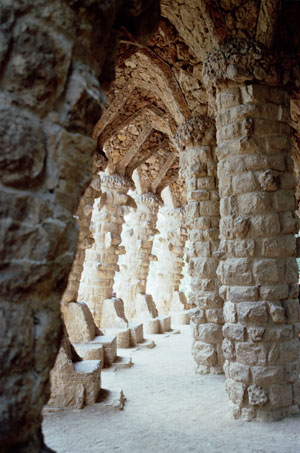
Catacomb
With seating, if you like to hang around catacombs.
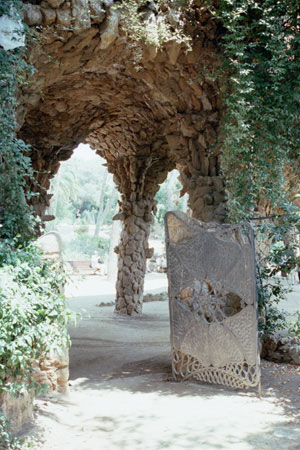
Iron gate
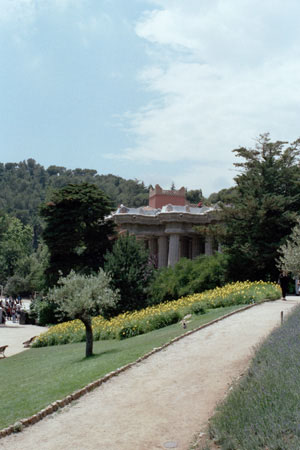
The main pavillion
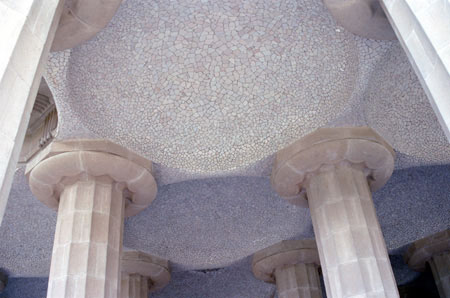
Columns and vaulting
There are 84 pillars
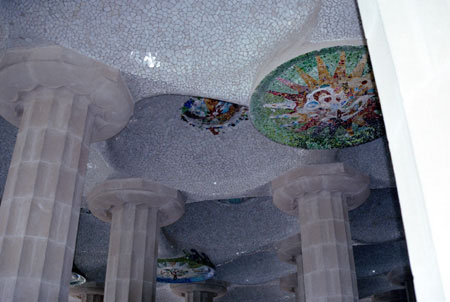
Mosaics
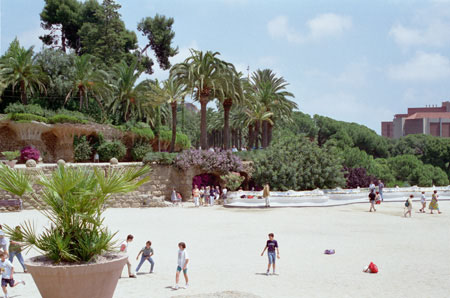
Playing field on the roof
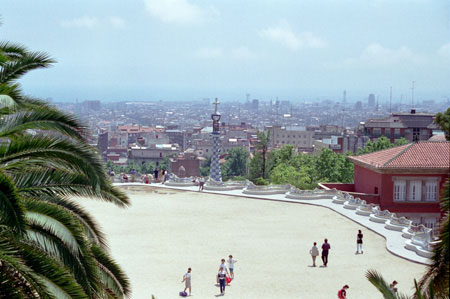
Decorated bench
The bench goes around most of the field.
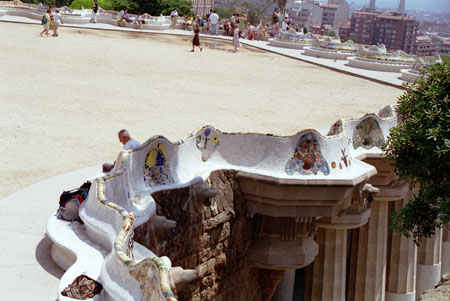
Side view
Just to prove that the field is really on the roof.
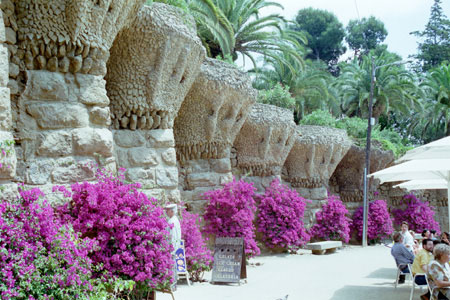
Ice cream stand
aside some fantastical plant holders

Fellow house guest, architect, and my tour companion for the day.
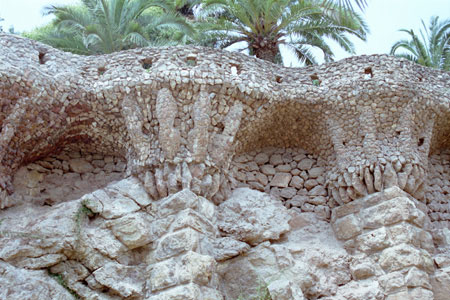
Detail
This is the wall around the field, and the border of a path that goes around the top. Reminds me of trilobite fossils.
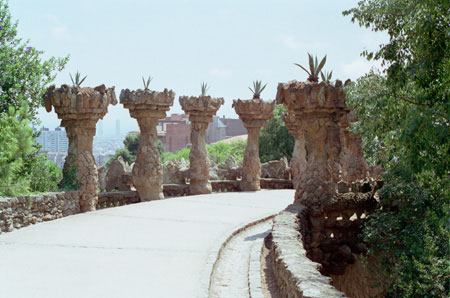
More planters
and benches on the path.
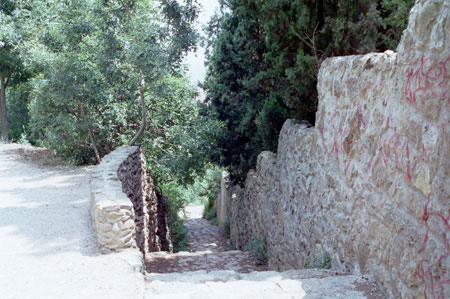
Stone staircase
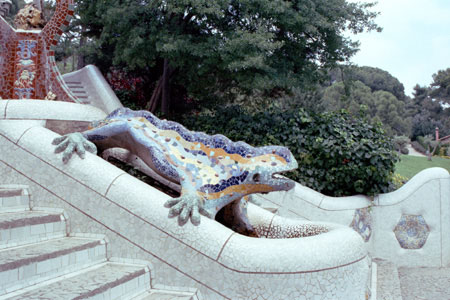
Mosaic lizard
One of several animals on the stair coming down from the pavillion.
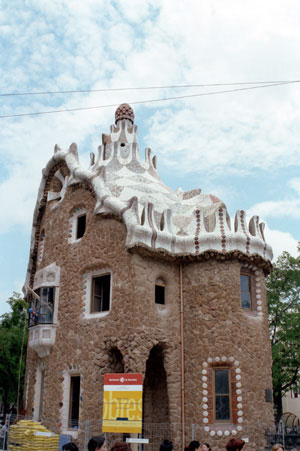
Gaudí museum
Gaudí actually lived in this building from 1906 to 1926, but it's actually designed by another architect, Francesc Beringuer.